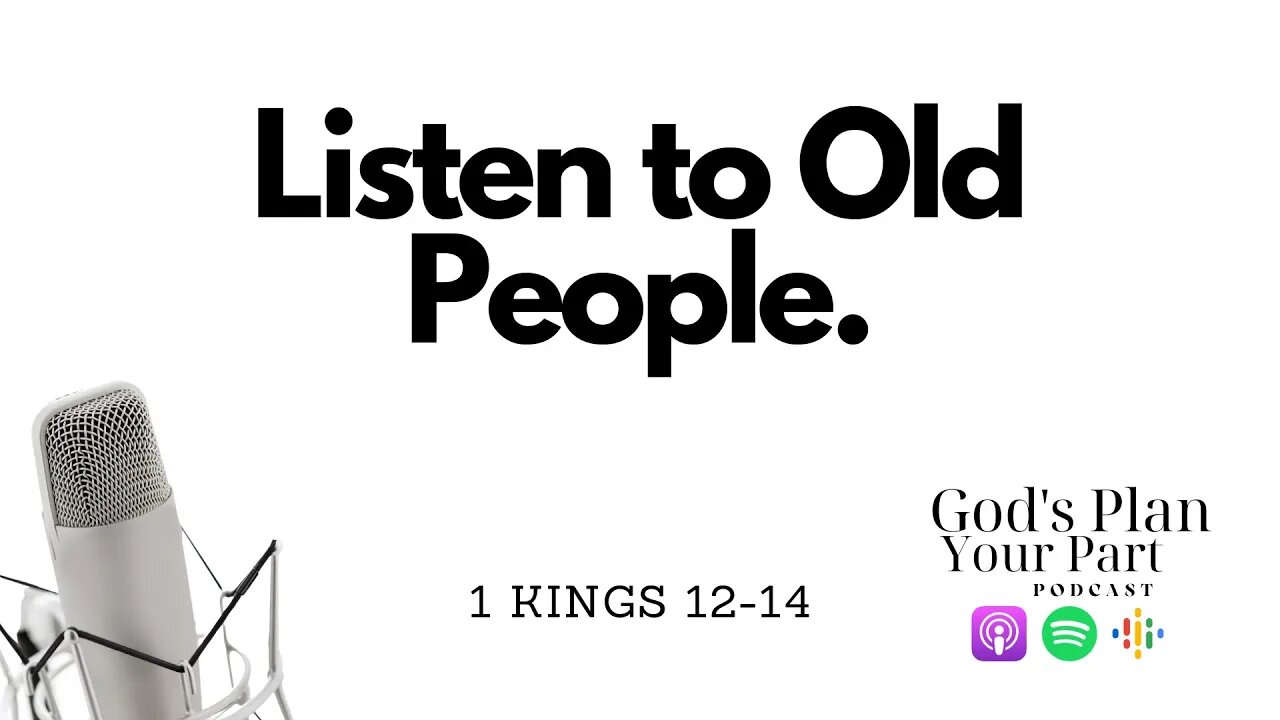Premium Only Content

1 Kings 12-14 | The Divided Kingdom
In 1 Kings 12, we witness the division of the united kingdom of Israel. Following the death of King Solomon, his son Rehoboam ascends to the throne. However, he fails to heed the advice of the elders and instead listens to the counsel of his peers, which leads to his harsh rule. This decision prompts the ten northern tribes, led by Jeroboam, to revolt and establish the separate kingdom of Israel. This event fulfills the prophecy of Ahijah and marks a significant turning point in Israel's history.
Chapter 13 introduces a prophetic confrontation between a man of God and Jeroboam, the first king of the northern kingdom of Israel. The man of God is sent by the Lord to denounce Jeroboam's idolatrous practices, specifically the setting up of golden calves for worship. Despite initially receiving divine protection and a powerful sign, the man of God disobeys God's instructions and is deceived by an older prophet, leading to his death. This cautionary tale highlights the importance of faithfulness and obedience to God's commands.
In 1 Kings 14, the focus shifts to the southern kingdom of Judah and its king, Abijah (also known as Rehoboam's son). Abijah's reign is marked by a decline in faithfulness to God, following the footsteps of his father and grandfather. The chapter recounts how Abijah and his son fall into idolatry, forsaking the Lord's ways. As a consequence, God brings judgment upon the kingdom, promising to uproot the house of Jeroboam and cause calamity to befall Israel. Despite these warnings, the chapter concludes with Abijah's death and the continuation of wickedness in both kingdoms.
-
 23:20
23:20
Gods Plan Your Part
6 months ago1 Timothy 5 | Building a Church That LASTS for Generations
391 -
 2:08:32
2:08:32
Tim Pool
3 hours agoAmerica First or Supporting Ukraine War, DEBATE | The Culture War with Tim Pool
126K122 -
 LIVE
LIVE
Dr Disrespect
2 hours ago🔴LIVE - DR DISRESPECT - WARZONE VERDANSK - SOLO WINS
2,155 watching -
 59:04
59:04
Ben Shapiro
1 hour agoEp. 2178 - SHOWDOWN: Trump Stares Down China
7.4K4 -
 1:39:05
1:39:05
Steven Crowder
4 hours ago🔴 Doge's Big Secret & Trump Slaps Commies and Illegals
326K219 -
 LIVE
LIVE
Canada Strong and Free Network
6 hours agoCanada Strong and Free Network
369 watching -
 LIVE
LIVE
Rebel News
1 hour ago $0.81 earnedLibs push more censorship, Carney's ties to 'largest tax scam', CCP influence in BC | Rebel Roundup
504 watching -
 58:27
58:27
The Big Mig™
2 hours agoTITLE: Global Finance Forum From Bullion To Borders We Cover It All
2.95K3 -
 50:13
50:13
The Rubin Report
5 hours agoWill Trump’s New Escalation in Trade War with China Backfire?
81.1K17 -

Flyover Conservatives
13 hours agoFrom Stuck to Scaling: Clay Clark’s 5 Tips to Rapid Business Growth - Clay Clark | FOC Show
21K4